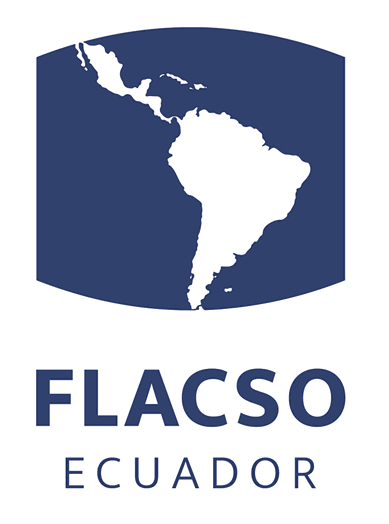Por favor, use este identificador para citar o enlazar este ítem:
http://hdl.handle.net/10469/1468Registro completo de metadatos
| Campo DC | Valor | Lengua/Idioma |
|---|---|---|
| dc.creator | Barié, Cletus Gregor | - |
| dc.date | 2008-01 | - |
| dc.date.accessioned | 2009-12-15T15:09:53Z | - |
| dc.date.available | 2009-12-15T15:09:53Z | - |
| dc.identifier.citation | Barié, Cletus Gregor. Derecho indígena y medios alternativos de resolución de conflictos (Artículo) = Indigenous rights and alternative means of conflict resolution. En: Urvio: revista latinoamericana de seguridad ciudadana, Quito: FLACSO sede Ecuador. Programa de Estudios de la Ciudad, (n. 3, enero 2008): pp. 110-118. ISSN: 1390-3691 | en |
| dc.identifier.issn | 1390-3691 | - |
| dc.identifier.uri | http://hdl.handle.net/10469/1468 | - |
| dc.description | Los Estados latinoamericanos independientes integraron corrientes occidentales del pensamiento jurídico a la hora de diseñar su orden constitucional. El derecho indígena (también llamado “usos y costumbres” o “administración indígena de justicia”) quedó en el olvido y hasta hace poco tenía un valor legal inferior. Pese a esto, el derecho indígena, que forma parte de una cosmovisión y práctica social, se ha mantenido y recreado durante siglos. Entre los principios fundamentales del derecho indígena se destacan la integralidad, el carácter público del proceso, la oralidad, la celeridad, y la constante actualización del derecho a situaciones nuevas... | en |
| dc.description | Since their Independence, Latin American States used to integrate western philosophy and legal concepts when designing their constitutional framework. The indigenous rights (also called “customary right” or “indigenous administration of justice”) were ignored and until recently had an inferior legal value. In spite of this, the indigenous right, that forms part of an own philosophical and social practice, has been put in practice and recreated during centuries. The fundamental principles of the indigenous right are its comprehensiveness, the public character of the process, the importance of the spoken word, celerity, and the constant adaptation to new situations... | en |
| dc.format | p. 110-118 | en |
| dc.language | spa | en |
| dc.publisher | Quito : Flacso Sede Ecuador. Programa de Estudios de la Ciudad | en |
| dc.rights | openAccess | es_ES |
| dc.rights | Atribución-NoComercial-SinDerivadas 3.0 Ecuador | * |
| dc.rights.uri | http://creativecommons.org/licenses/by-nc-nd/3.0/ec/ | * |
| dc.subject | DERECHO INDÍGENA | en |
| dc.subject | JUSTICIA COMUNITARIA | en |
| dc.subject | SISTEMAS ALTERNATIVOS DE RESOLUCIÓN DE CONFLICTOS | en |
| dc.subject | AMÉRICA LATINA | en |
| dc.subject | BOLIVIA | en |
| dc.subject | INDIGENOUS RIGHTS | en |
| dc.subject | CUSTOMARY RIGHT | en |
| dc.subject | ALTERNATIVE CONFLICT RESOLUTION | en |
| dc.subject | LATIN AMERICA | en |
| dc.subject | BOLIVIA | en |
| dc.title | Derecho indígena y medios alternativos de resolución de conflictos | en |
| dc.title.alternative | Indigenous rights and alternative means of conflict resolution | en |
| dc.type | article | es_ES |
| dc.tipo.spa | Artículo | en |
| Aparece en las colecciones: | Revista Urvio No. 03, ene. 2008 | |
Archivos en este ítem:
| Archivo | Descripción | Tamaño | Formato | |
|---|---|---|---|---|
| 09. Artículo. Derecho Indígena y medios alternativos de resolución de conflictos. Cletus Gregor Barié.pdf | 211,82 kB | Adobe PDF |  Visualizar/Abrir |
Este ítem está sujeto a una licencia Attribution NonComercial ShareAlike (CC BY-NC-SA 4.0)
Licencia Creative Commons



